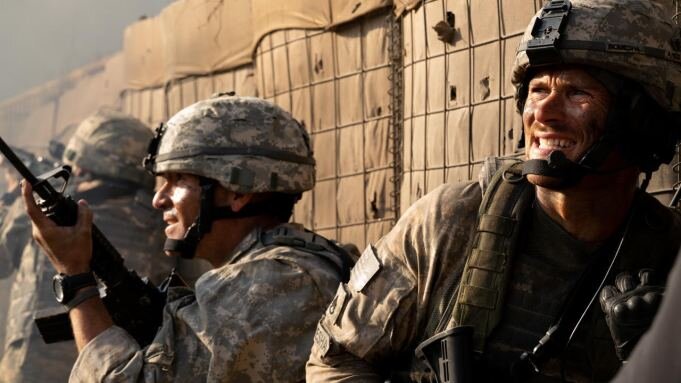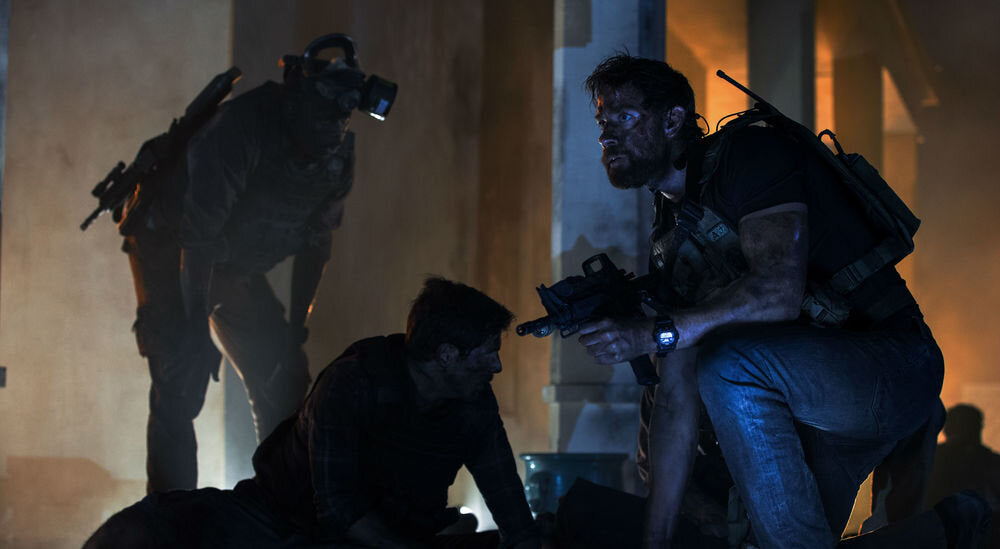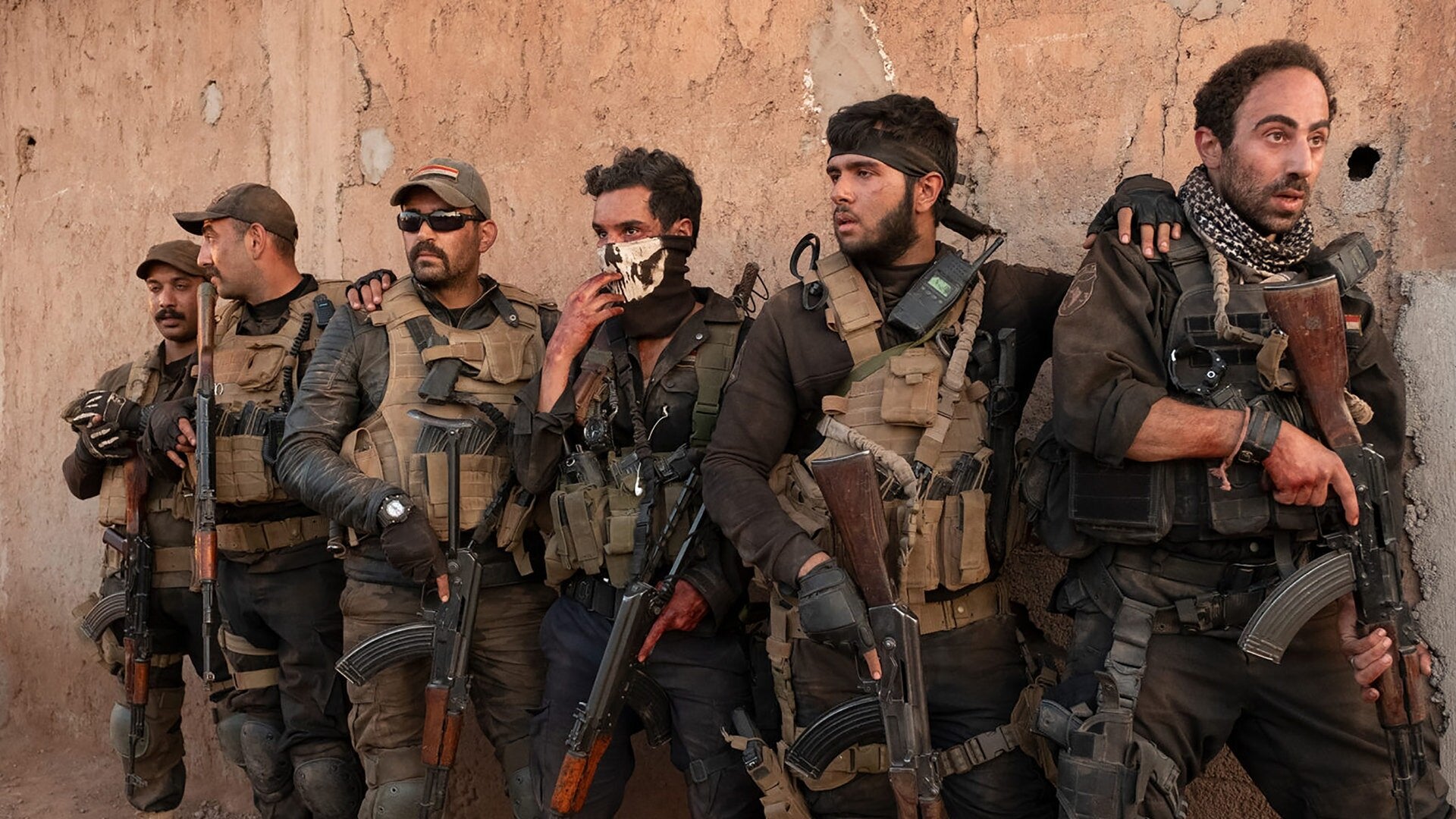
Movie Review: The Outpost
I have a love-hate relationship with war movies, and I think it’s safe to say most of us do. David Rose aka Mr. Blonde’s last piece on authenticity pretty much spells out why, so I won’t rehash the many reasons here when you can go read it.
When I got the opportunity to view an advanced screening of The Outpost (releasing July 3), a new film about the Battle of Kamdesh based on Jake Tapper’s 2012 book The Outpost: An Untold Story of American Valor, I was pretty stoked. But I have to be honest, I felt a small twinge of anxiety when I got my pre-screen link. Was this going to be like all the other hero movies?
After watching, I can say with confidence: NO. It is not.
If you are looking for a war movie where the men in uniform are good looking, motivated patriotic American heroes who further the glory of America, with a soundtrack that algorithmically manipulates your emotions, go elsewhere. The Outpost isn't that type of movie.
If I had to only use one word, it’s this: authentic.
When I say authentic, I am not talking about correct uniforms, correct dispersion, correct tactics, and a hardline dedication to actual events, though this is almost spot on—Keating and Yllescas, for example didn’t serve at COP Keating in the narrative present, but were added for narrative effect and purpose.
I mean that the storytelling elements that I as a writer am looking for—narrative arc, character development, etc.—are present without the Hollywood window dressing.
One of the most notable examples of this is that the characters talk like real GWOT vets. Guys do their jobs and follow orders, but they grumble. And the gunfights and THE gunfight—the guys shit talk and make dark jokes.
In short, this film feels like a real deployment and the GWOT at large, which is exactly director Rod Lurie’s vision for The Outpost. Let me explain with as few spoilers as possible.
The movie is long—two hours and three minutes long. And the pacing for most of the film is slow. But this isn’t a negative critique. This is the point.
The bulk of the film consists of scenes from everyday life at COP Keating punctuated by short—very short—gunfights. In fact, I felt that instead of a long narrative arc, The Outpost was a series of connected day-to-day vignettes leading up to the actual Battle of Kamdesh (which as a writer who uses a similar narrative style, I was happy to see).
At first, I admit, I was taken aback by the slow wind up, but once I thought about it, bounced it off of what I knew a deployment is like, and looked at the overall narrative focus, it made sense. The film’s pacing is slow, punctuated by seconds of activity. And this is the heart of its authenticity.
Another authentic feature I appreciated was the barely present but, incompetent higher leadership. There isn’t a specific, named American general making decisions that influence the events. Higher is some mysterious entity making calls over the hook so far from the battlefield that they don’t really understand the situation on the ground—and Higher’s decisions repeatedly put the soldiers' lives at risk—sound familiar? The subtlety of the critique on Leadership is powerful when you couple it with the sprawling day-to-day nature of the film. The viewer soon realizes what it was like to be a soldier at COP Keating without being told, and that is excellent storytelling.
And at the end, after the battle, they leave. The Army decided the position was untenable and they demo the COP. After all that time, all that energy, all that sacrifice and bloodshed and they just left. So, after watching the movie, after committing the time, the viewer is left wondering, WTF.
And again, I say EXACTLY.
Think about it. We fought the Revolution because we wanted liberty and independence. The War of 1812 was more or less a continuation of the same. Our Civil War was to preserve the Union and destroy slavery as an institution. WWI was to stop the German Empire’s expansion, more or less. WWII was to stomp out Naziism and fascism. Korea and Vietnam—ostensibly—were to stop the spread of Communism.
But the GWOT? Can we say we had a definite, overarching mission (besides winning hearts and minds) with strategic metrics? Or did we just go and try to stay alive so that we could do it all again in six, nine, twelve months?
The theme of survival, of gutting it out until we get to go home, is pervasive throughout. Idealism and jingoism aside, survival is the most authentic theme of our war.
Despite all of the things above I listed that I think work exceedingly well, what I found most remarkable was that the movie didn’t end with an American “victory” at COP Keating. It goes a bit further down the road and looks at the after. I won’t spoil it, just watch it and appreciate it.
The Outpost does the job of communicating exactly what a GWOT deployment was like with no fan-fare, no dog and pony show, and none of the Hollywood trappings our citizenry are told war films should contain.
And that is what an authentic war film should do.
The Outpost directed by Rod Lurie
Available on Video on Demand July 3rd
RATING:
Written By Beelz
7/1/20









